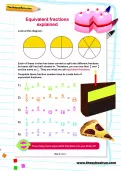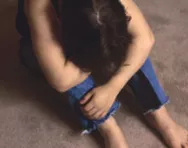Important update from TheSchoolRun
For the past 13 years, TheSchoolRun has been run by a small team of mums working from home, dedicated to providing quality educational resources to primary school parents. Unfortunately, rising supplier costs and falling revenue have made it impossible for us to continue operating, and we’ve had to make the difficult decision to close. The good news: We’ve arranged for another educational provider to take over many of our resources. These will be hosted on a new portal, where the content will be updated and expanded to support your child’s learning.
What this means for subscribers:
- Your subscription is still active, and for now, you can keep using the website as normal — just log in with your usual details to access all our articles and resources*.
- In a few months, all resources will move to the new portal. You’ll continue to have access there until your subscription ends. We’ll send you full details nearer the time.
- As a thank you for your support, we’ll also be sending you 16 primary school eBooks (worth £108.84) to download and keep.
A few changes to be aware of:
- The Learning Journey weekly email has ended, but your child’s plan will still be updated on your dashboard each Monday. Just log in to see the recommended worksheets.
- The 11+ weekly emails have now ended. We sent you all the remaining emails in the series at the end of March — please check your inbox (and spam folder) if you haven’t seen them. You can also follow the full programme here: 11+ Learning Journey.
If you have any questions, please contact us at [email protected]. Thank you for being part of our journey it’s been a privilege to support your family’s learning.
*If you need to reset your password, it will still work as usual. Please check your spam folder if the reset email doesn’t appear in your inbox.
Alternative education: what are the benefits?

They begin education the earliest, they are the most tested and they spend the most days in school. Judging by these findings, it’s hard not to feel sorry for the average UK state-educated child.
The stats may explain why there’s been an increased interest in alternative education. Over 50,000 children are now home educated in the UK, while there are increasing numbers of Steiner, Montessori and small community schools cropping up, often as part of the free schools movement.
What’s taught in these schools?
Steiner schools encourage learning through play until children are seven and believe that they should write before they can read.
Montessori education is characterised by multi-age classrooms and special learning materials to isolate each learning quality individually.
Small community schools are committed to small-scale learning communities based on the values of democracy, fairness and respect.
These schools all serve to nurture every part of the child – creative, emotional, moral, spiritual, as well as intellectual and physical. They encourage pupils to choose their own course of learning and not focus purely on achieving academic success. Subsequently, and perhaps most importantly, there are no tests, just learning for the sake of learning.


Boost Your Child's Learning Today!
- Start your child on a tailored learning programme
- Get weekly English & maths resources sent direct to your inbox
- Keep your child's learning on track
What are the benefits?
Dr Richard House, a Steiner school teacher, says, “Socially progressive schools maximise the likelihood of children growing up to have a responsible and mature understanding of freedom, and therefore being able to exercise it effectively and maturely in their lives. This contrasts with mainstream schooling, which increasingly seems geared towards to churning out people who will preserve the status quo and fit into the existing system.”
To some parents the idea of a ‘socially progressive’ school may sound like an excuse for kids to do what they like all day but Phillip Martyn, a teacher at the Steiner Waldorf School of South West London, refutes this suggestion.
“It is not at all a free and easy education,” he says. “Steiner set out the curriculum approach, which the schools follow, indicating what subjects should be introduced at various ages. The major difference is that the children do not start reading and writing until they are seven, which is of course normal in many parts of the world other than UK.”
The best choice?
The downside to alternative education is that it receives no state funding and therefore the vast majority require private funding or charitable donations. A lack of interest from the Government may also explain a lack of empirical evidence for or against alternative education.
However, studies have been conducted in the US where there are already 5,000 Montessori schools. One study compared Montessori and state-educated children and showed that, in the early years, Montessori children performed better on standardised tests in reading and maths, engaged in more positive interaction in the playground, and showed more advanced social cognition and executive control. At the end of elementary school, Montessori children wrote more creative essays with more complex sentence structures, selected more positive responses to social dilemmas, and reported feeling more of a sense of community at their school.
As interest in alternative education continues to increase, the Government is now being forced to sit up and take notice of these kinds of schools.
Other resources:
Find out more about different kinds of alternative schooling through these links:
- Education Otherwise offers advice and information for parents considering home education in the UK. TheSchoolRun also has an extensive home education offering.
- The Human Scale Education Movement works with schools and parents to promote learning environments where children and young people are known and valued as individuals.
- Sands School is one of only two democratic schools in the United Kingdom. There is no headteacher and no hierarchy: the school is jointly managed by students and staff.








